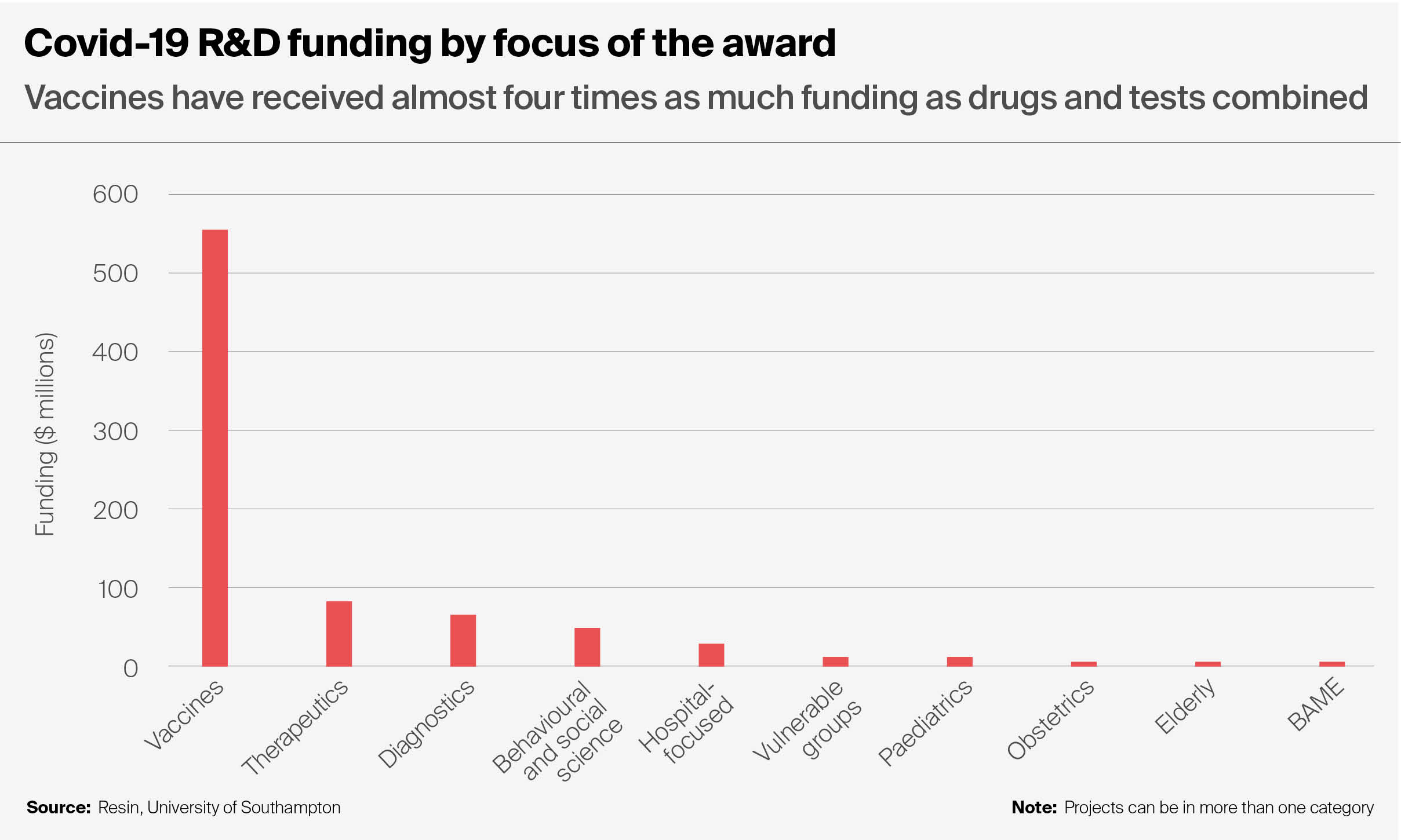
Latest analysis of coronavirus research reveals ‘very low’ awards and funding despite apparent BAME risks
Research specifically on issues faced by black, Asian, and minority ethnic people has received just under $2.6m out of nearly $1bn spent on Covid-19 research globally so far, the latest data show.
This amounts to just 0.27 per cent of the overall funding and is despite the BAME population being at a higher risk of contracting the disease and dying from it.
The data come from the 10 June update of the ongoing Research Investments in Global Health study at the University of Southampton, which has identified 1,026 Covid-19 awards worth $951 million awarded over the past six months.

The UK was the second largest national funder providing 12 per cent of the global share, and the third nation in the number of awards provided (156), behind the US and Canada.

“There are still too few studies focusing on some of the high-risk, for example care home research and also focusing on BAME communities in westernised societies,” says Michael Head, lead for the study at the university.
He adds that there are now a couple of National Institute for Health Research and UK Research and Innovation calls focusing on BAME, so for the UK portfolio those numbers will go up.

He adds two further caveats: “It’s a new topic and everyone is in a rush”. Plus, he says, his team’s numbers “don’t include epidemiology studies that will stratify findings by age, sex and ethnicity” since that’s not the focus of the study as indicated in the title and abstract.
“But regardless,” Head concludes, “it does look to me that funding and number of awards focusing on BAME are very low. Hopefully, given recent published reports highlighting the inequalities, there will be a significant focus going forward.”